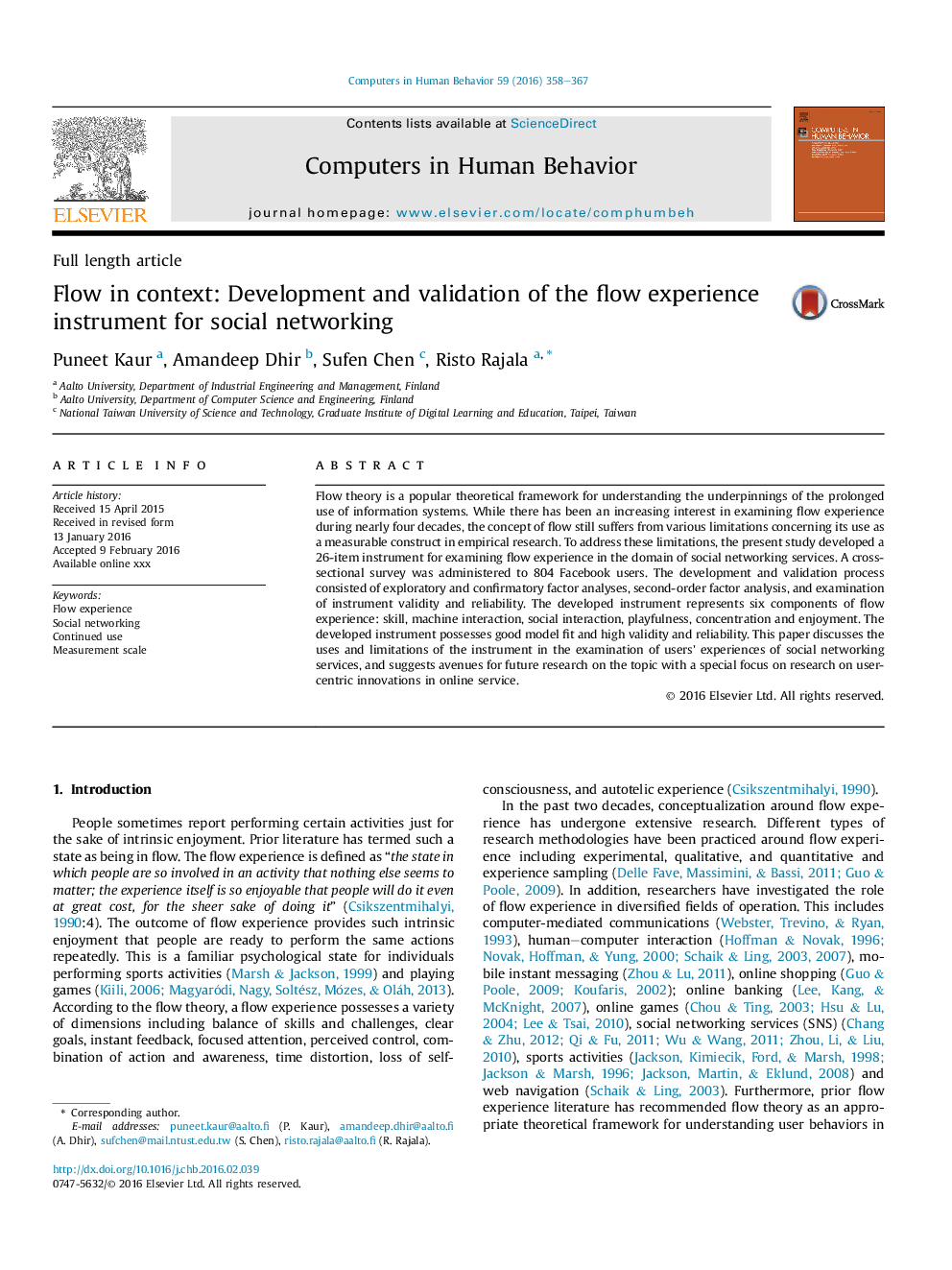| Article ID | Journal | Published Year | Pages | File Type |
|---|---|---|---|---|
| 6837470 | Computers in Human Behavior | 2016 | 10 Pages |
Abstract
Flow theory is a popular theoretical framework for understanding the underpinnings of the prolonged use of information systems. While there has been an increasing interest in examining flow experience during nearly four decades, the concept of flow still suffers from various limitations concerning its use as a measurable construct in empirical research. To address these limitations, the present study developed a 26-item instrument for examining flow experience in the domain of social networking services. A cross-sectional survey was administered to 804 Facebook users. The development and validation process consisted of exploratory and confirmatory factor analyses, second-order factor analysis, and examination of instrument validity and reliability. The developed instrument represents six components of flow experience: skill, machine interaction, social interaction, playfulness, concentration and enjoyment. The developed instrument possesses good model fit and high validity and reliability. This paper discusses the uses and limitations of the instrument in the examination of users' experiences of social networking services, and suggests avenues for future research on the topic with a special focus on research on user-centric innovations in online service.
Related Topics
Physical Sciences and Engineering
Computer Science
Computer Science Applications
Authors
Puneet Kaur, Amandeep Dhir, Sufen Chen, Risto Rajala,
